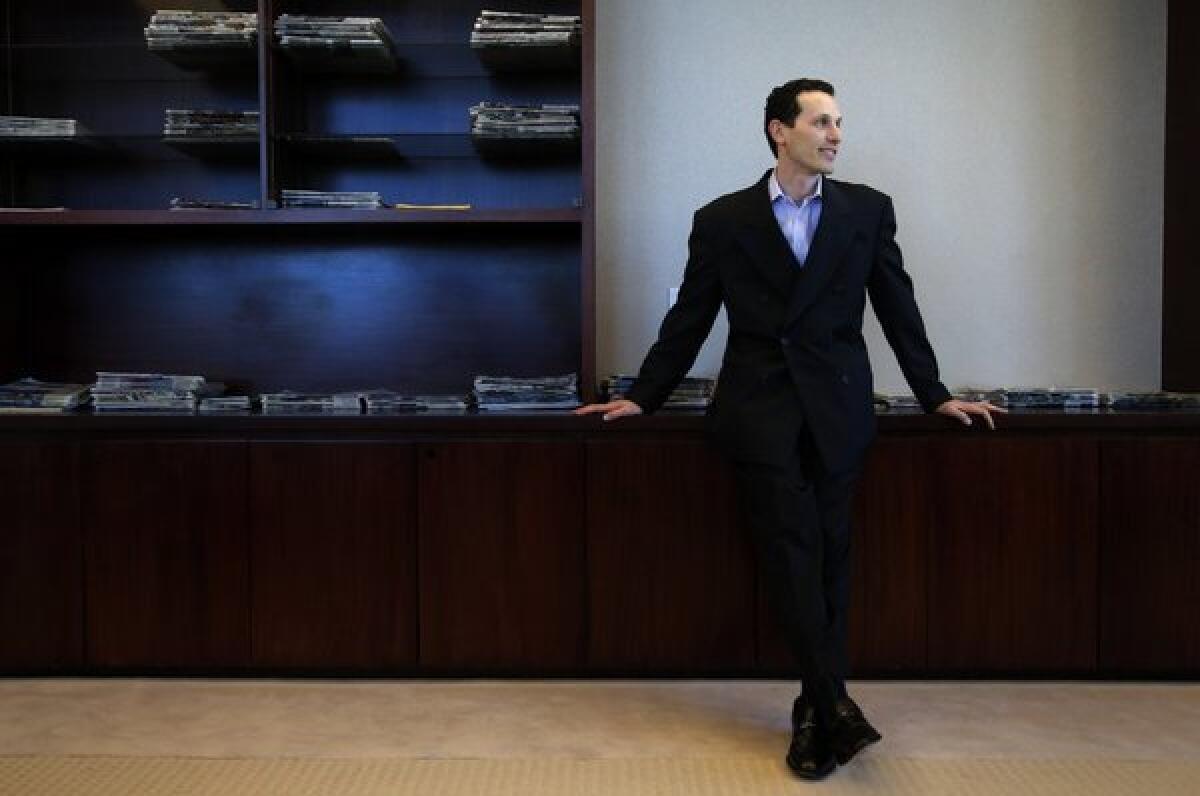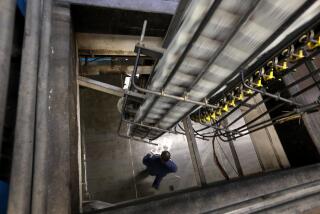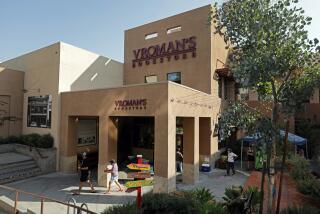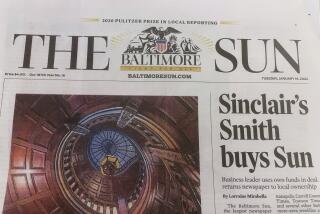Sale of Riverside newspaper may be in jeopardy

A deal to sell the Riverside Press-Enterprise to the owner of the Orange County Register may be in jeopardy less than a month after it was announced.
On Oct. 10, Aaron Kushner, owner of the Register, said he would buy the Inland Empire’s largest newspaper for $27.25 million, adding it to his fast-growing stable of Southern California dailies.
But a new filing by A.H. Belo Corp., the Press-Enterprise’s current owner, casts serious doubts on the deal.
Originally slated to close Oct. 15, the sale has been extended to Nov. 15, according to the Monday filing to the Securities and Exchange Commission, and amended provisions require Kushner to prove that his company, Freedom Communications, is financially solvent and has enough cash to operate the Riverside paper after a transfer.
Perhaps most notable is a requirement that Kushner put up $1 million in cash as a “down payment” on the deal. Such a nonrefundable payment, akin to a layaway sale at a discount store, is highly unusual in the world of mergers and acquisitions, experts say.
PHOTOS: Top cities with falling wages
Freedom Communications spokesman Eric Morgan declined comment. “As a privately owned company we do not publicly discuss financial terms of an acquisition,” he said in an email.
In a statement accompanying the filing, Jim Moroney, chairman and chief executive of A.H. Belo, said the company looked “forward to closing on the previously announced sale of the newspaper operations of The Press-Enterprise” in mid-November. A.H. Belo, also owns the Dallas Morning News and the Providence Journal, among other papers.
The news last month that Kushner would buy the Press-Enterprise, which has suffered through significant declines in circulation and staffing, was greeted with great excitement.
Kushner acquired the Register and two other California papers in July 2012 for $50 million plus the assumption of various liabilities, including at least $110 million in unfunded pension obligations.
Since then, he has hired hundreds of journalists, opened a new paper in Long Beach and greatly expanded the print product. His agreement to pay more than $25 million for a paper representing an economically hard-hit community underscored the notion that Kushner had a vision for a newspaper renaissance.
Meeting with employees of the Press-Enterprise last month, he pledged to continue to expand. “There is only one path for the survival of newspapers and that is to grow,” he said.
But the reworked terms of the Press-Enterprise deal appear to underscore swirling rumors in media circles that Kushner’s financing for the purchase may have fallen through. And that, in turn, feeds mounting concerns about how financially viable Freedom Communications’ aggressive growth strategy really is.
One clause of the new sales agreement, for example, said that Kushner must prove his company is “solvent” and won’t have “an unreasonably small amount of capital for the business in which it is engaged.”
In addition, the filing said, Freedom must “pay its debts as they become absolute and mature.”
Kushner, a former greeting card company executive, purchased Freedom with a loan from Crystal Financial, a private lender. Executives at Crystal have declined to comment on the terms or status of that loan.
In addition, the new deal terms prohibit Kushner from paying a portion of the sales price with $17.45 million held in an escrow account as part of his 2012 purchase of Freedom.
That amount -- called a holdback and used to protect buyers from unexpected losses in a deal -- is at the center of a lawsuit filed late last month by the prior owners of the company.
Kushner has refused to pay and maintains that former company executives fraudulently misstated and concealed financial information leading up to closing, leading him to overpay.
Kushner and his companies are also subject to at least two other lawsuits with multimillion-dollar claims related to his purchase of Freedom.
If the latest deal falls through, A.H. Belo would keep the $1-million down payment from Kushner, which the filing said has already been paid. But it would still be a significant blow to the Dallas concern, which has been attempting to shrink its portfolio of newspapers for some time.
Still, the company appears to be preparing for that contingency. The filing said Kushner had agreed that A.H. Belo may “immediately pursue alternative transactions” for the paper if the sales agreement is terminated.
An aborted sale would also go over poorly among the 375 employees of the Press-Enterprise, a group diminished by nearly two-thirds in the past decade and by now accustomed to hard times. In July, A.H. Belo sold the building where the newspaper is located for $30 million.
Speaking to a group of staffers last month, Kushner issued what might have been a warning.
“The transition will not be easy,” he said. “It never is.”
ALSO:
Report: Child care costs more than college in much of U.S.
Fast-food workers in Seattle could soon make $31,000 a year
Treasury official Lael Brainard to step down, could be Fed nominee






